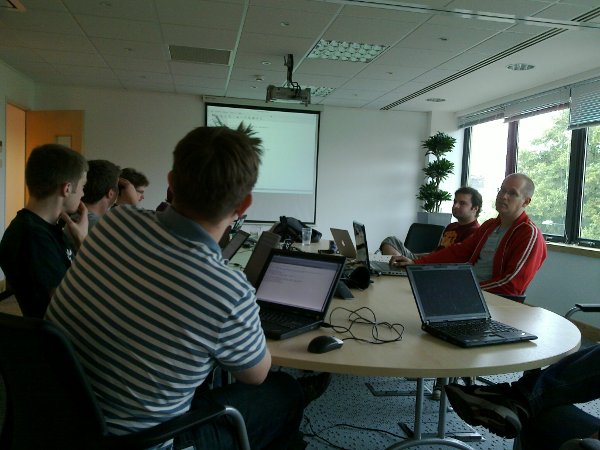GStreamer maintainer Wim Taymans just released the first 0.11 development release of GStreamer. The 0.11 development series will lead up to the long awaited GStreamer 1.0 release!
The changes from 0.10.x to 0.11 might seem quite technical and obscure to most, with items such as reworked buffer memory management, arbitrary buffer metadata and integrated bufferpool management being among the advertised features, but all these changes are made to help GStreamer make significant leaps forward in terms of integration with hardware codecs like VAAPI and VDPAU and of course hardware codecs on embedded platforms like ARM for instance the OpenMax IL API. There are also a lot of important performance improvements, which will make applications like Totem and Banshee more snappy to use, but you probably will see the biggest improvements in applications like PiTiVi who relies on more complex pipelines and thus more complex pipeline negotiations. For devices which got more constrained CPU resources, like various embedded systems, these performance gains should also be very noticeable.
At Collabora we are putting a lot of effort towards GStreamer 1.0, most visible through letting Wim put most of his work hours into it, in collaboration with our partners at Texas Instruments. GStreamer is not just another open source project for us at Collabora, it is something we are truly passionate about. The open source software ecosystem can not compete with proprietary systems unless we have a top notch media framework and with GStreamer we are providing exactly that. Ever since the release of GStreamer 0.10 the project has gone from strength to strength, and when 1.0 gets released later this year it will be another major milestone towards world domination :)
For those interested to learn more about GStreamer 1.0 you have two good opportunities coming up, Collabora’s own Wim Taymans and Edward Hervey will be doing a talk about GStreamer 1.0 at the Desktop Summit on 8th of August. And Wim will also be doing a keynote speech about GStreamer 1.0 at the GStreamer Conference 2011 in October. So I hope to see you there.
I am also working on an interview with Wim Taymans about GStreamer 1.0 so if you have any questions you would like me to include, feel free to add them to the comments section of this blog post.
We will also be organizing some 0.11 hackfests online where people like Wim, Tim and Edward will be online to answer porting questions and the community can work together to port all important plugins to 0.11. There is some early stage porting documentation to be found here.
For now, go to the GStreamer website and grab the 0.11 tarballs and give them a spin, and if you have any questions, remember you are always welcome in #gstreamer on irc.freenode.net.


